If you are looking for the best affordable colleges in Michigan for bachelor’s degrees, then you have come to the right place. Michigan is home to a diverse group of institutions of higher learning, including career preparation and technology universities, religious schools, small colleges, and large state schools that support long-running athletic rivalries. Michigan also boasts a lower cost of living than other regions across the country, making it a more affordable choice overall. Our goal was to not only identify the top-rated colleges and universities in the state but also the ones that offer the most value for your money. In fact, 65 percent of the most affordable colleges in Michigan on the list below offer tuition rates of less than $20,000 per year — a clear indication that a high-quality yet inexpensive college degree is within easy reach.
Methodology
We developed a methodology to award points based on three of the most important factors you will need to consider when choosing a college or university to attend: average cost of attendance, graduation rates, and student-to-faculty ratios. These three factors provide information related to affordability, student success and satisfaction, and class sizes. To compile our initial list of schools, we conducted a search for the colleges and universities in Michigan offering bachelor’s degrees using the College Navigator tool at the National Center for Education Statistics (NCES). We ranked the schools based upon the information given from NCES in those three areas. In the instance of a point-based tie, we broke the tie with the lowest-cost tuition.
Average Cost of Attendance
Whether you are well on your way to choosing a college for your bachelor’s degree or you are just beginning to think about attending a university, the average cost of attendance is likely the first thing you will look at when researching degrees and schools. However, avoid choosing a school just because it is the cheapest; instead, make sure the school you select not only provides an affordable program but also offers everything you are looking for in a college such as a certain major, a particular club or organization, or opportunities for internships and/or research. For this article, we awarded points according to the following tuition rates that are based on the cost of one year of study for in-state students completing 15 hours of coursework per semester from NCES. Out-of-state tuition costs are also provided for your reference only and were not used as a basis for awarding points.
Points:
Under $7,500: 3 points
$7,500 to $15,000: 2 points
$15,001 and above: 1 point
Student-to-Faculty Ratio
To determine the size of a school and, ultimately, the size of its classes, we look at its student-to-faculty ratio. As you research schools and their learning environments, keep in mind that there is no one-size-fits-all institution. In other words, some students may prefer the hustle and bustle of a larger university, while others might fare better in smaller settings in which they have the opportunity to develop close relationships with their peers and professors. For the purpose of this article, however, we awarded points based on the following ranges, providing the highest number to schools that reported the lowest student-to-faculty ratios as reported by NCES.
Points:
10:1 or less: 3 points
11:1 to 15:1: 2 points
Greater than 15:1: 1 point
Graduation Rate
Finally, graduation rates tell us a good bit about student success and satisfaction. After all, isn’t the ultimate goal to complete a program and earn your degree? Schools that report low graduation rates might be struggling in one or more areas, causing students to leave before they earn their degrees and finish their education elsewhere. Although not always a red flag, low graduation rates could indicate problems such as a lack of academic support, unhelpful or experienced faculty, or unaffordable degrees. For this reason, schools with the highest graduation rates from NCES earned the highest number of points based on the following ranges.
Points
More than 50 percent: 3 points
Between 30 percent and 50 percent: 2 points
Less than 30 percent: 1 point
Ranking 20 Best Affordable Colleges in Michigan
20. Lake Superior State University
Sault Sainte Marie, Michigan

Points: 5
School Website
Located in Sault Sainte Marie, Lake Superior State University is the smallest affordable Michigan university, enrolling around 3,000 undergraduate and graduate students. Established in 1946, the school is known for its low-cost academic programs in fields such as criminal justice, fire science, business management, geology, nursing, teacher education, engineering, and fisheries and wildlife management. Students who are unsure of a major may choose to pursue a liberal arts/undecided option to explore multiple pathways while continuing to fulfill the school’s basic education requirements. LSSU is a great choice for outdoor explorers who can take advantage of the school’s camping and hiking trips as well as a nearby national wildlife refuge.
In-State Tuition: $11,895
Out-of-State Tuition: $11,895
Student-to-Faculty Ratio: 17:1
Graduation Rate: 44 percent
19. Ferris State University
Big Rapids, Michigan
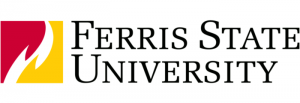
Points: 5
School Website
Founded as Big Rapids Industrial School in 1884, Ferris State University is one of the top-value colleges in Michigan. Located in Big Rapids, its students can choose from more than 190 low-cost degree programs, including two-year degrees, 20 master’s programs, and doctoral degrees in pharmacy, optometry, nursing practice, and education. Affordable undergraduate offerings include Bachelor of Social Work, Bachelor of Science in Nursing, Bachelor of Science, Bachelor of Arts, and Bachelor of Applied Science programs. Popular inexpensive degrees include police and criminal science, business, nursing, engineering, mechanical engineering, hospitality and tourism management, and healthcare management. Ferris State emphasizes experiential learning, and approximately 70 percent of students participate in an internship in their fields. Outside of the classroom, students may join more than 200 organizations and clubs.
In-State Tuition: $11,788
Out-of-State Tuition: $11,788
Student-to-Faculty Ratio: 16:1
Graduation Rate: 45 percent
18. Northern Michigan University
Marquette, Michigan
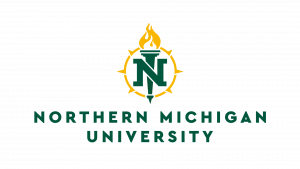
Points: 5
School Website
Located in Marquette, NMU is the largest affordable Michigan university in the Upper Peninsula. Enrolling 8,000 undergraduate and graduate students each year, NMU offers inexpensive bachelor’s, master’s, and doctoral degrees as well as specialist certifications in a number in in-demand fields. Popular cheap degrees at NMU include the arts, criminal justice, nursing administration, biology, business, environmental science, and accounting. In 2017, NMU was the first college in the nation to confer a four-year bachelor’s degree in medicinal plant chemistry. It is also the first public university in the state to implement a Teaching, Learning and Communication (TLC) initiative dedicated to enhancing students’ learning experiences. Students of this inexpensive school receive a mobile device as part of their tuition and fees to provide them with more complete, faster access to their peers, professors, and notes. Students also benefit from free counseling and information services as well as tutoring labs and a writing center.
In-State Tuition: $10,729
Out-of-State Tuition: $16,225
Student-to-Faculty Ratio: 20:1
Graduation Rate: 49 percent
17. Saginaw Valley State University
University Center, Michigan
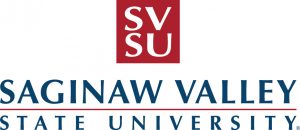
Points: 5
School Website
Founded as Saginaw Valley College in 1963, Saginaw Valley State University is a public university located in University Center. The youngest school in our list of affordable colleges in Michigan, SVSU offers more than 100 cheap academic programs at the undergraduate and graduate levels, including pre-professional programs in law and health. Popular majors at this inexpensive university in Michigan include nursing, business, and social work as well as criminal justice, health services, kinesiology, and elementary education. Faculty members across SVSU’s five colleges include students in their work and seek out opportunities to help them grow. SVSU also offers an honors program, a Foundation Scholars Program, and a Living Leadership Program in which students become active in an on-campus organization, attend a leadership conference, participate in community service, and reside in specially designed housing.
In-State Tuition: $10,308
Out-of-State Tuition: $24,215
Student-to-Faculty Ratio: 17:1
Graduation Rate: 40 percent
16. Spring Arbor University
Spring Arbor, Michigan
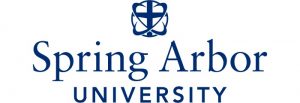
Points: 6
School Website
Established in 1873 as a junior college, Spring Arbor University is an affordable Christian university in Michigan that is affiliated with the Free Methodist Church. The school’s main campus in Spring Arbor is home to SAU’s traditional undergraduate students, with more than 70 inexpensive undergraduate programs and majors offered. It is also home to four graduate degrees, a wealth of caring staff and faculty, and a rich history of spiritual and academic excellence. The school’s most popular economical degrees by the number of graduates include social work, nursing, operations management, business, family studies and consumer sciences, psychology, and the liberal arts and humanities. As a Christian school, SAU campus life focuses on developing students’ spirituality. On-campus activities include outreach ministries, fellowship groups, chapel services, and more than 50 organizations and clubs.
In-State Tuition: $28,810
Out-of-State Tuition: $28,810
Student-to-Faculty Ratio: 11:1
Graduation Rate: 59 percent
15. Northwood University
Midland, Michigan
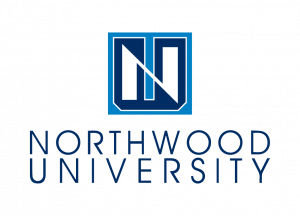
Points: 6
School Website
Established in 1959 with the goal of developing the future leaders of a free-enterprise, global society, Northwood University is a private accredited university in Michigan. Located on a 434-acre main campus in Midland, NU is one of the top colleges in Michigan offering more than 20 low-cost bachelor’s degrees centered around entrepreneurship, management, and business. Unique top-value degrees include innovation management and marketing, franchising management, fashion management and marketing, and aftermarket management. Graduate degrees include programs in business administration, finance, and organizational leadership. Students of this best-value university in Michigan may participate in activities such as community outreach organized through NU’s EXCEL Program and student-run broadcast media.
In-State Tuition: $27,060
Out-of-State Tuition: $27,060
Student-to-Faculty Ratio: 11:1
Graduation Rate: 55 percent
14. Cornerstone University
Grand Rapids, Michigan

Points: 6
School Website
Cornerstone University, located in Grand Rapids, is a non-denominational Christian university that offers inexpensive undergraduate and graduate programs to 3,000 students each year. This low-cost school was founded in 1941 as the Bible Baptist Institute and is known today for its Grand Rapids Theological Seminary on the main campus as well as the Asia Baptist Theological Seminary based in Chiang Mai, Thailand. At the undergraduate level, popular top-value degrees include business, psychology, and kinesiology as well as religious vocations, theological and ministerial studies, and elementary education. Approximately 94 percent of undergraduate students are either enrolled in a graduate school or employed within six months of earning their degree.
In-State Tuition: $24,500
Out-of-State Tuition: $24,500
Student-to-Faculty Ratio: 15:1
Graduation Rate: 53 percent
13. Finlandia University
Hancock, Michigan

Points: 6
School Website
Founded as the Suomi College and Theological Seminary in 1896, Finlandia University is now a private Lutheran university located in Hancock, Michigan. This affordable university in Michigan is affiliated with the Evangelical Lutheran Church in America, enrolling fewer than 700 students per year. As a result, Finlandia boasts an incredible 7:1 student-to-faculty ratio that allows for plenty of opportunities for students to develop relationships with their professors and peers as well as receive the academic support they need to succeed. Finlandia’s top-value undergraduate programs are organized into industries such as the health sciences, art and design, business, and the arts and sciences. Popular economical degrees include nursing, business, physical therapy, the liberal arts and humanities, and psychology. On-campus notables include the Finnish American Heritage Center, the Jutila Center, two art galleries, and the Finnish American Folk School.
In-State Tuition: $22,758
Out-of-State Tuition: $22,758
Student-to-Faculty Ratio: 7:1
Graduation Rate: 30 percent
12. Madonna University
Livonia, Michigan

Points: 6
School Website
Located in Livonia, Madonna University is a private Catholic accredited university in Michigan established by the Felician Sisters in 1937. Ranked among the most affordable private non-profit universities in the state, Madonna University boasts a 13:1 student-to-faculty ratio and provides 85 percent of students with grants and scholarships to offset the cost of tuition. The school confers low-cost certificates, associate degrees, bachelor’s degrees, and graduate and professional programs across six colleges and schools: Graduate Studies, Business, Nursing and Health, Natural and Social Sciences, Education, and Arts and Humanities. Popular areas of study include nursing, criminal justice, homeland security and disaster management, international business, and biology. MU is also a national pioneer of hospice education programs and sign language studies.
In-State Tuition: $21,900
Out-of-State Tuition: $21,900
Student-to-Faculty Ratio: 13:1
Graduation Rate: 69 percent
11. University of Michigan-Ann Arbor
Ann Arbor, Michigan

Points: 6
School Website
The University of Michigan-Ann Arbor is one of the most affordable colleges in Michigan, as well as the oldest university in the state. Founded in Detroit in 1817, U-M enrolls around 44,000 students each year. The school is nationally recognized as a leader in higher education due to the quality of its internationally renowned faculty, 19 colleges and schools, and departments that offer more than 250 degree programs. U-M is among the top colleges in the state for its research-intensive academic options in medicine and healthcare, though students may also pursue a variety of inexpensive majors in the liberal arts and sciences. Students participate in more than 1,600 student organizations and clubs targeting student leadership, cultural exploration, outdoor adventures, and NCAA Division I athletic teams.
In-State Tuition: $15,262
Out-of-State Tuition: $49,350
Student-to-Faculty Ratio: 11:1
Graduation Rate: 92 percent
10. Michigan State University
East Lansing, Michigan
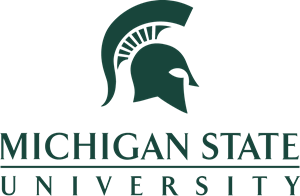
Points: 6
School Website
Michigan State University, located in East Lansing was founded in 1855 as the Agricultural College of the State of Michigan. It began as one of the first institutions in the country to teach scientific agriculture as well as the first school to offer programs in rehabilitation counseling, organizational psychology, and nuclear physics. Today, MSU confers more than 200 inexpensive academic programs, 28 of which are ranked in the top 25 in the country by U.S. News & World Report. Students have the opportunity to create a personalized, powerful path through a collaborative, inclusive community, world-class facilities, and high-caliber opportunities. This top-value school in Michigan offers popular majors such as communications, advertising, economics, biology, and psychology as well as logistics and supply chain management, kinesiology, finance, and mechanical engineering. Undergraduates are encouraged to work together with the school’s world-renowned researchers to enhance their knowledge and skills through hands-on learning.
In-State Tuition: $14,460
Out-of-State Tuition: $39,766
Student-to-Faculty Ratio: 16:1
Graduation Rate: 79 percent
9. Grace Christian University
Grand Rapids, Michigan

Points: 6
School Website
Grace Christian University is an evangelical college located in Grand Rapids. Established in 1945, this cheap college in Michigan is affiliated with the Grace Gospel Fellowship and reports an undergraduate enrollment of just over 1,000 students. The school aims to develop passionate servants of Jesus by offering inexpensive academic options that emphasize the integration of character transformation, ministry experience, and biblical truth. Each degree consists of three components: a vocational major, theological and biblical studies, and general education courses, and undergraduate options include programs in general studies, worship arts, psychology, interdisciplinary studies, human services, criminal justice, business, and biblical studies. Students can also earn both their bachelor’s and master’s in ministry or organizational leadership within five years through GCU’s 4+1 degree programs.
In-State Tuition: $13,945
Out-of-State Tuition: $13,945
Student-to-Faculty Ratio: 14:1
Graduation Rate: 50 percent
8. Wayne State University
Detroit, Michigan
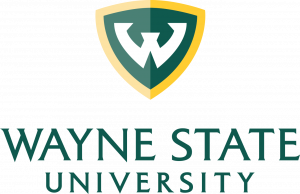
Points: 6
School Website
Wayne State University is a public accredited university in Michigan, located in Detroit. Established in 1868, it is the third-largest university in the state, enrolling more than 27,000 undergraduate and graduate students annually. Comprised of six extension centers, 100 buildings, and 13 colleges and schools on more than 200 acres of academic space, WSU offers more than 380 affordable degree programs, including popular majors in psychology, biology, social work, international business, health professions, nursing, the arts, and organizational behavior. In addition to providing high-quality, low-cost academic options, WSU also operates the first electric-drive vehicle engineering program in the country as well as the largest multiple sclerosis research and treatment center in the state. WSU’s campus in the heart of Detroit provides easy access to an abundance of career opportunities such as research and internships.
In-State Tuition: $13,097
Out-of-State Tuition: $27,991
Student-to-Faculty Ratio: 14:1
Graduation Rate: 47 percent
7. Central Michigan University
Mount Pleasant, Michigan
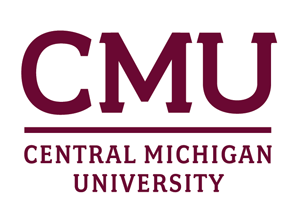
Points: 6
School Website
Established in 1892, Central Michigan University is one of the largest universities in the state. Located in Mount Pleasant, it enrolls nearly 17,000 students at its main campus as well as 4,700 online and global students. CMU’s eight colleges and more than 200 low-cost undergraduate programs help students develop the communication, analytical, research, and critical thinking skills they need to succeed. Popular majors at CMU include psychology, kinesiology, marketing, and business as well as community organization and advocacy, logistics and supply chain management, child development, and entrepreneurship. This best-value school also offers the only event management major and the only undergraduate meteorology program in the state. Students enjoy more than $360 million in scholarships and financial aid each year, and graduates can expect a respectable $228,000 ROI over 20 years.
In-State Tuition: $12,960
Out-of-State Tuition: $24,120
Student-to-Faculty Ratio: 20:1
Graduation Rate: 58 percent
6. University of Michigan-Dearborn
Dearborn, Michigan

Points: 6
School Website
Established in 1959, UMD is one of the top-value colleges in Michigan. Students can choose from more than 100 undergraduate majors and minors as well as more than 40 graduate degrees, many of which include flexible online and evening options. The school is home to four distinct colleges, each of which features engaged faculty and small classes: Engineering & Computer Science; Business; Arts, Sciences, & Letters; and Education, Health, & Human Services. Students will enjoy a 17:1 student-to-faculty ratio and find mentors among the school’s renowned, community- and industry-connected professors, who engage students in groundbreaking research. Students of this cheap college in Michigan also have many opportunities to apply for jobs and internships through UMD’s business partnerships with international organizations and local industries.
In-State Tuition: $12,930
Out-of-State Tuition: $25,158
Student-to-Faculty Ratio: 17:1
Graduation Rate: 54 percent
5. Grand Valley State University
Allendale, Michigan
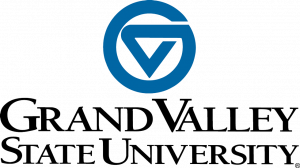
Points: 6
School Website
Located on a 1,322-acre main campus 12 miles west of Grand Rapids in Allendale, Grand Valley State University is an affordable accredited university in Michigan that was established in 1960. Through its main campus as well as four additional campuses and learning centers across Michigan, GVSU serves more than 25,000 students. GVSU focuses its more than 75 academic programs on education as well as healthcare and the medical sciences, although majors span more than 200 areas of study. Popular programs at this low-cost university include education, marketing, psychology, finance, management science and information systems, and nursing. More than 400 student organizations and more than 60 school-sponsored study-abroad programs are within easy reach.
In-State Tuition: $12,484
Out-of-State Tuition: $17,762
Student-to-Faculty Ratio: 16:1
Graduation Rate: 65 percent
4. Western Michigan University
Kalamazoo, Michigan

Points: 6
School Website
Western Michigan University, located in Kalamazoo, is often recognized as the best institution of higher learning in the state for veterans. Established in 1903, WMU enrolls 22,500 undergraduate and graduate students each year, yet the school fosters an intimate, inclusive learning environment that makes students feel as though they are on a much smaller campus. This low-cost university is known for its aviation program, which is ranked as one of the top five of its kind in the country. Students can choose from more than 150 other inexpensive academic options, including degrees in audiology, sales and business marketing, integrated supply management, occupational therapy, psychology, geology, and jazz studies. WMU is also home to the largest and oldest low-vision and blind studies program in the world.
In-State Tuition: $12,483
Out-of-State Tuition: $15,373
Student-to-Faculty Ratio: 17:1
Graduation Rate: 51 percent
3. University of Michigan-Flint
Flint, Michigan

Points: 6
School Website
The University of Michigan-Flint is one of three campuses that make up the University of Michigan System. Established in 1956, UM-Flint is comprised of five colleges and schools that offer more than 100 low-cost majors: Arts & Sciences, Health Sciences, Education & Human Services, Management, and Nursing. In addition to providing the only undergraduate degree in green chemistry in the state, UM-Flint is known for its inexpensive academic programs in nursing and healthcare management as well as business and psychology. Outside of the classroom, students are encouraged to play in a club sport, participate in programs organized by the Campus Activities Board, become a member of a fraternity or sorority, or join or start a student organization or club.
In-State Tuition: $11,304
Out-of-State Tuition: $22,065
Student-to-Faculty Ratio: 13:1
Graduation Rate: 44 percent
2. Kuyper College
Grand Rapids, Michigan

Points: 7
School Website
Located in Grand Rapids, Kuyper College is a ministry-focused Christian leadership college that trains and educates Christian leaders for service and ministry. Ranked second in the country for student satisfaction among Christian colleges, this low-cost college in Michigan aims to equip students with a reformed, biblical worldview to effectively service Christ’s church and world. The school enrolls more than 250 students in economical undergraduate degree programs in family ministry, pastoral care, ministry leadership, and youth ministry as well as in pre-seminary ministry. Inexpensive majors are also available in subjects such as psychology, intercultural studies, graphic design, education, and business leadership. Students may also choose to double-major, earning a degree in their chosen program as well as a degree in Bible and Theology. Campus activities include holiday banquets, retreats, and community service designed to strengthen students’ call to faith and service while promoting social and intellectual skills.
In-State Tuition: $21,989
Out-of-State Tuition: $21,989
Student-to-Faculty Ratio: 10:1
Graduation Rate: 54 percent
1. University of Detroit Mercy
Detroit, Michigan
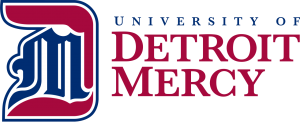
Points: 7
School Website
The University of Detroit Mercy is a private Roman Catholic university that was founded in 1877. This best affordable college in Michigan is the largest Roman Catholic institution of higher learning in the state by enrollment, educating more than 5,000 students per year. A traditional liberal arts college that offers the resources of a large research university, UDM confers more than 100 academic majors and programs, and 89 percent of faculty hold doctorates or terminal degrees in their field. Popular areas of study include nursing, biology, business, architecture, healthcare management, and information systems. Approximately 92 percent of undergraduate students receive financial aid to help make UDM’s academic options more affordable. Outside of the classroom, students may conduct a research project, find an internship with a local organization, or join a co-op in their field and work directly with a nearby business.
In-State Tuition: $28,000
Out-of-State Tuition: $28,000
Student-to-Faculty Ratio: 10:1
Graduation Rate: 62 percent
Frequently Asked Questions
What are the Most In-Demand Careers in Michigan for Graduates with a Bachelor’s Degree?
According to the Michigan Department of Technology, Management, and Budget, the following are 10 high-demand, high-wage careers for graduates with a bachelor’s degree that show a favorable mix of median wages, projected annual job openings, and long-term growth from 2016 to 2026 shown as a percentage.
-
- Software Developers, Applications: 31 percent
- Market Research Analysts and Marketing Specialists: 24 percent
- Financial Managers: 18.3 percent
- Industrial Engineers: 18.2 percent
- Medical and Health Services Managers: 18.1 percent
- Civil Engineers: 16.8 percent
- Social and Community Service Managers: 16.3 percent
- Mechanical Engineers: 15.2 percent
- Software Developers, Systems Software 15.2 percent
- Personal Financial Advisors: 15.1 percent
In addition, businesses are not only coming to Michigan, but they are also expanding their operations throughout the state due to a business-friendly environment that is among the best in the country. Some of Michigan’s core industries include agribusiness, medical devices, cybersecurity, healthcare, and defense as well as aerospace, carbon fiber/composite materials, life sciences, information technology, and automotive/mobility.
What Are the Highest-Paying Jobs in Michigan?
Whether you are looking to pursue top-paying occupations in Michigan and you would like to learn more about your options or you know the exact career you wish to pursue, the U.S. Bureau of Labor Statistics (BLS) can be a useful resource for data involving salaries and occupations across the state. According to the BLS, the annual mean wage across all positions in all industries throughout both nonmetropolitan and metropolitan areas in Michigan was $49,510. The top five highest-paying occupations included:
-
- Anesthesiologists: $261,310
- Surgeons: $244,710
- Airline Pilots, Copilots, and Flight Engineers: $233,550
- Oral and Maxillofacial Surgeons: $220,660
- Orthodontists: $217,730
Other well-paid positions included psychiatrists, family and general practitioners, and chief executives. However, for the purpose of this article, we felt it was important to take a look at occupations that students could pursue either immediately after graduating with a bachelor’s degree or after earning a bachelor’s degree and obtaining additional experience and/or training. According to the BLS, the following are 10 careers that bachelor’s recipients can hold in Michigan that come with a six-figure salary:
-
- Sales Managers: $142,340
- Marketing Managers: $137,900
- Compensation and Benefits Managers: $133,450
- Architectural and Engineering Managers: $132,810
- Computer and Information Systems Managers: $121,020
- Financial Managers: $128,270
- Advertising and Promotions Managers: $124,670
- General and Operations Managers: $122,160
- Public Relations and Fundraising Managers: $121,690
- Postsecondary Education Administrators: $119,470
What are the Best Schools in Michigan for Bachelor’s Recipients?
Before you invest your time and money into a bachelor’s degree from a college or university in Michigan, it is important to find out which Michigan-based institutions of higher learning produce alumni with successful and well-paid careers. To determine the top schools in the state as far as financial value, we compiled a list of five schools that we listed above and provided salary earnings for both the beginning of a graduate’s career as well as halfway through his or her employment, according to PayScale. We based these figures on in-state tuition rates that students paid without a financial aid package. We also listed these schools in order from the highest 20-year net return on investment (ROI) to the lowest ROI, or the amount one can expect to earn 20 years after graduating with an undergraduate degree.
-
- 1. University of Michigan-Ann Arbor
– 20-Year Net ROI: $559,000
– Early Career Pay: $62,000
– Mid-Career Pay: $107,900
- 1. University of Michigan-Ann Arbor
-
- 2. Michigan State University
– 20-Year Net ROI: $417,000
– Early Career Pay: $53,900
– Mid-Career Pay: $99,800
- 2. Michigan State University
-
- 3. Ferris State University
– 20-Year Net ROI: $332,000
– Early Career Pay: $49,900
– Mid-Career Pay: $85,500
- 3. Ferris State University
-
- 4. Wayne State University
– 20-Year Net ROI: $320,000
– Early Career Pay: $49,900
– Mid-Career Pay: $88,000
- 4. Wayne State University
-
- 5. Western Michigan University
– 20-Year Net ROI: $303,000
– Early Career Pay: $49,800
– Mid-Career Pay: $91,200
- 5. Western Michigan University
The University of Michigan-Ann Arbor is not only Michigan’s largest school by enrollment with more than 44,000 students, but it also tops our list as one of the best-value affordable colleges in Michigan. With an impressive $559,000 20-year net ROI as well as the highest mid-career pay out of all five states, students seeking a high-quality education that will pay off down the road would be smart to consider U-M. Notable alumni include actor James Earl Jones, playwright Arthur Miller, Google co-founder Larry Page, and former President Gerald Ford. Whether you are looking to work in one of Michigan’s top industries such as agriculture, tourism, manufacturing, or automotive, or you are simply exploring your career options and looking for a degree to get you to where you want to go, we hope that our list of the best affordable colleges in Michigan for bachelor’s degrees helps you with your search.
AS Staff
This concludes our ranking of the 20 best affordable colleges in Michigan for bachelor’s degrees.
Other Rankings of Interest:
25 Best Affordable Online Business Administration Degree Programs (Master’s)
40 Best Affordable One-Year Accelerated Master’s Degree Programs
50 Most Affordable Colleges with the Best Return
25 Best Affordable Online Mathematics/ Statistics Education Degree Programs (Master’s)
25 Most Affordable Master’s of Statistics Degrees
20 Best Affordable Online Colleges for Computer Networking Degree
10 Most Affordable Law Schools in the United States
15 Best Affordable Animation Degree Programs (Bachelor’s)
40 Best Affordable Pre-Med Degree Programs (Bachelor’s)
15 Best Affordable Film Studies Degree Programs (Bachelor’s)

 The Best Colleges
The Best Colleges The Lowest Costs
The Lowest Costs The Highest Returns
The Highest Returns